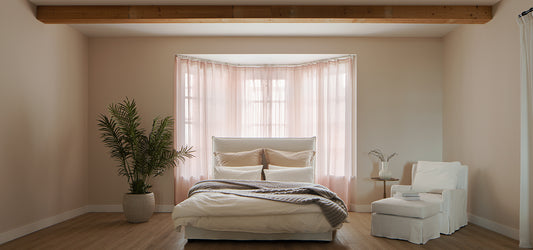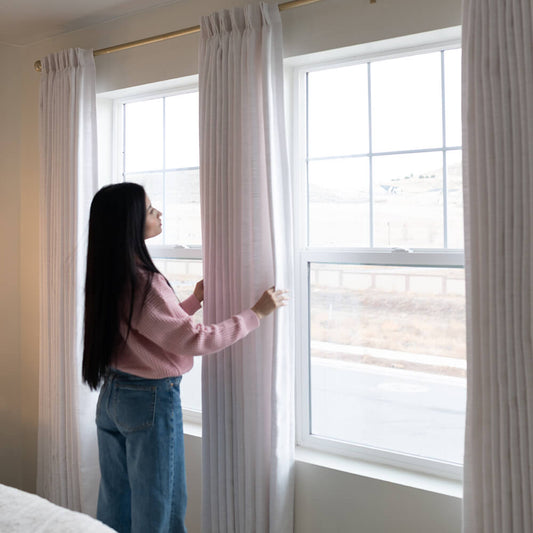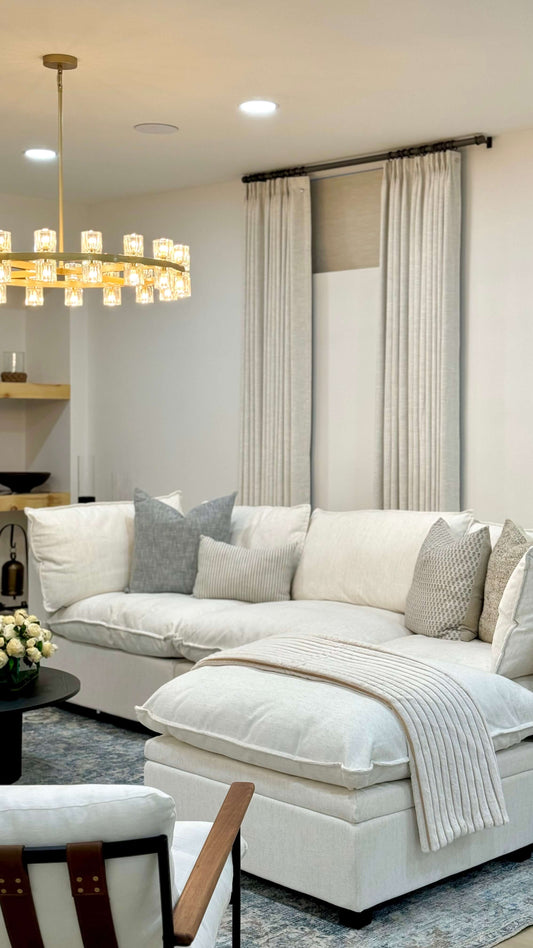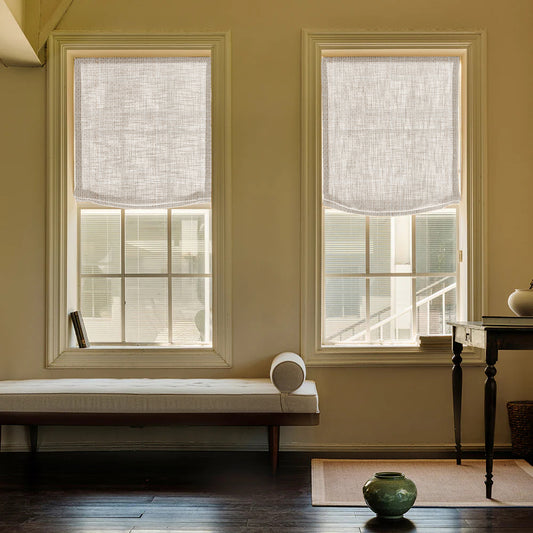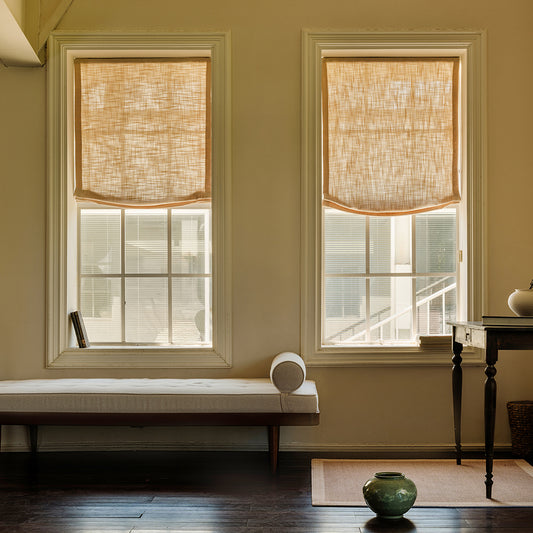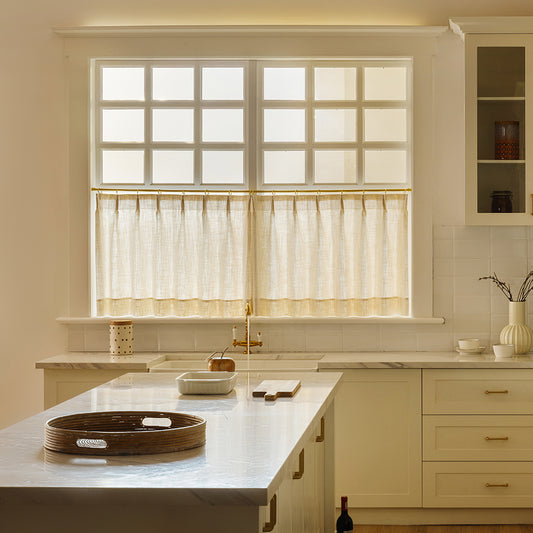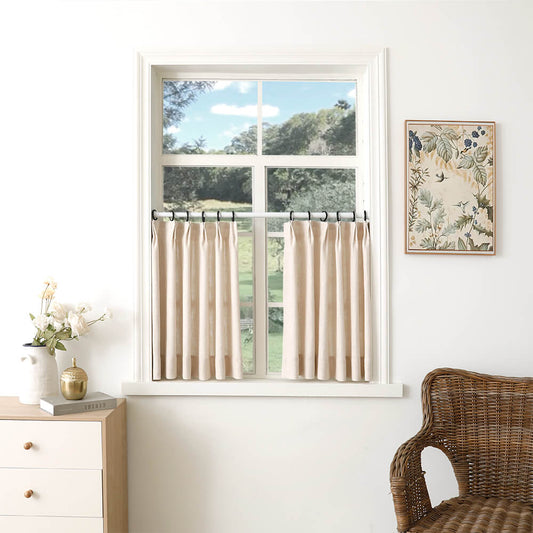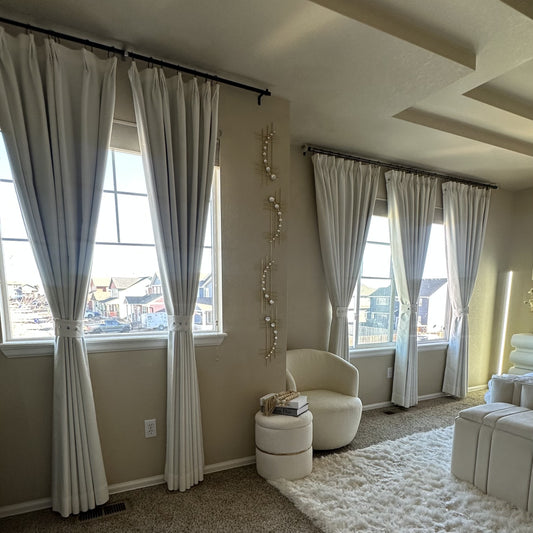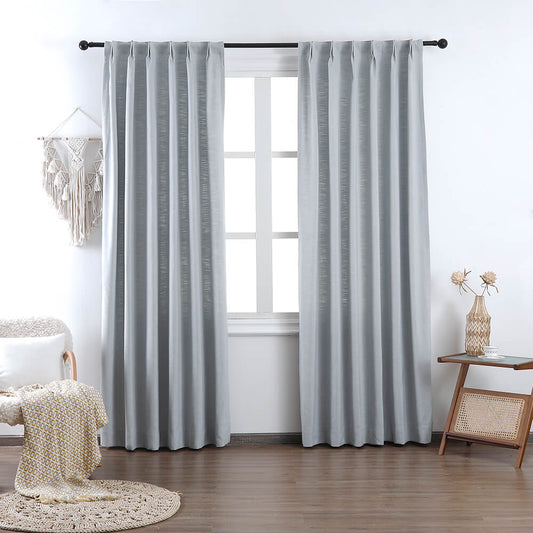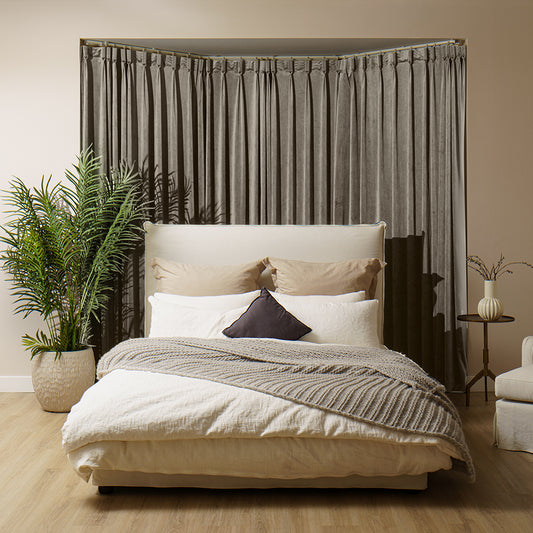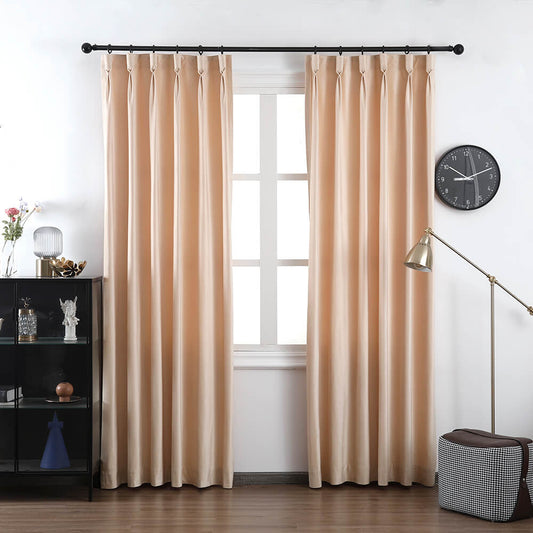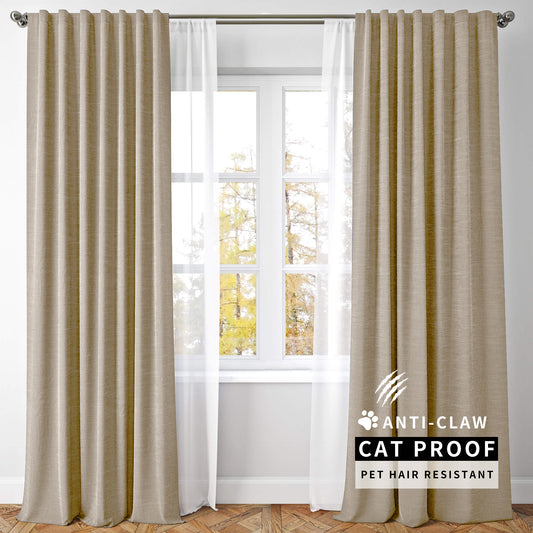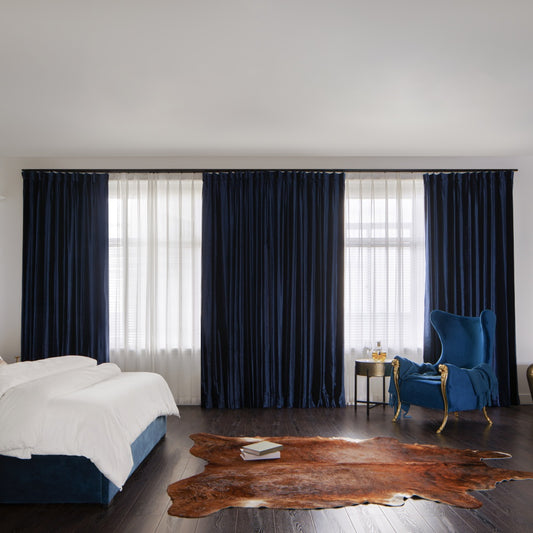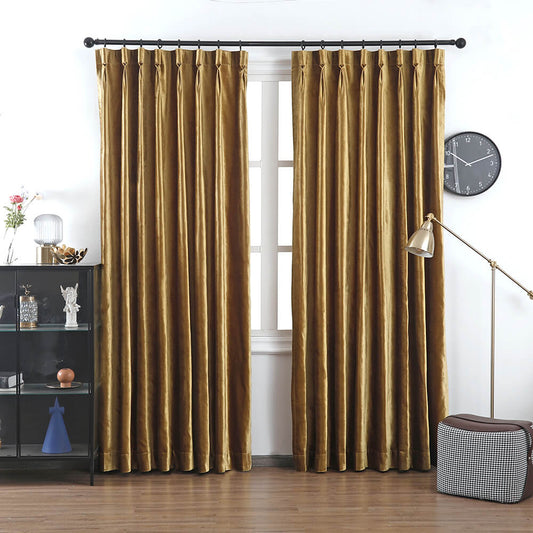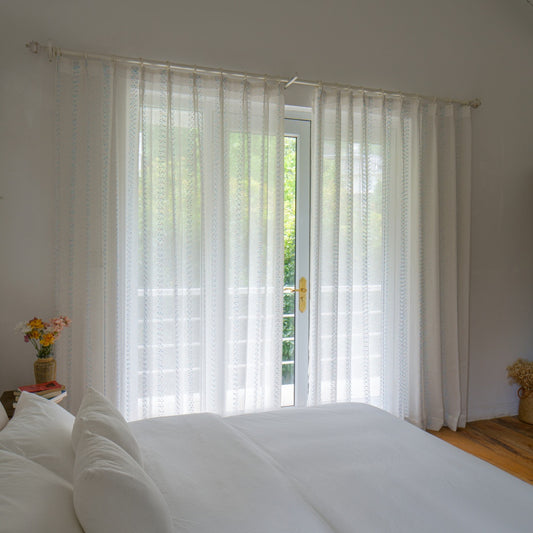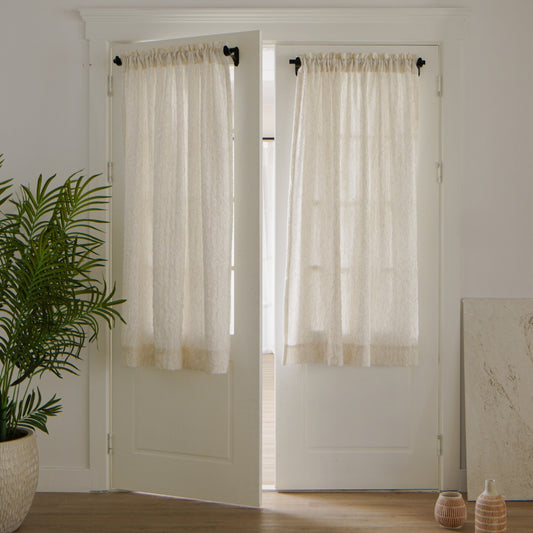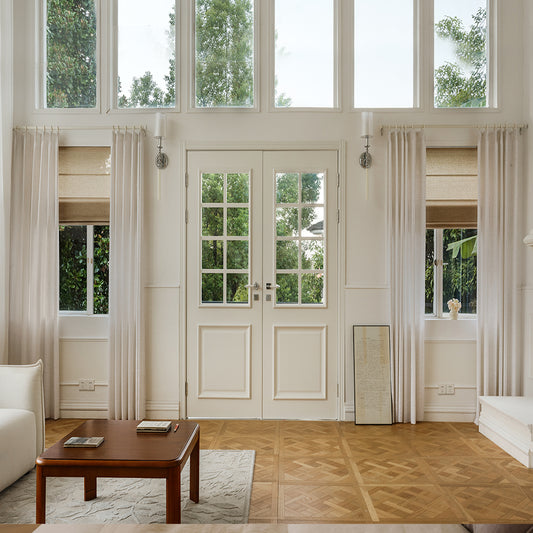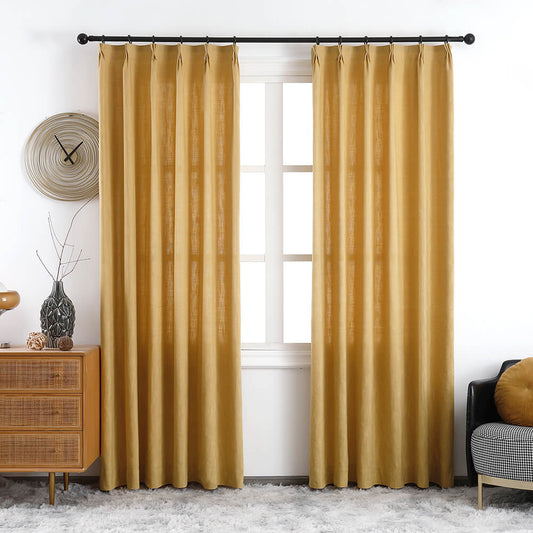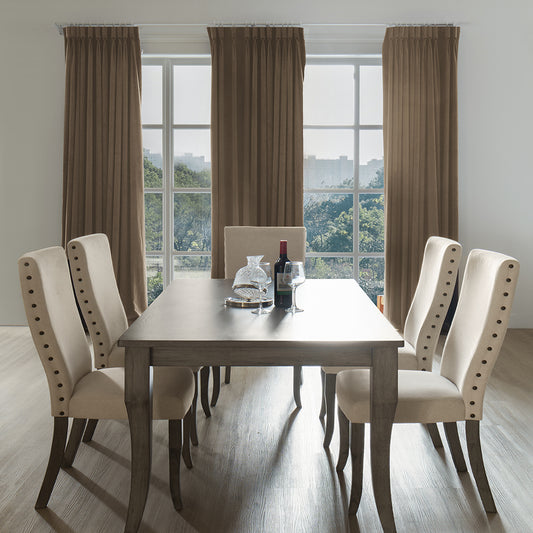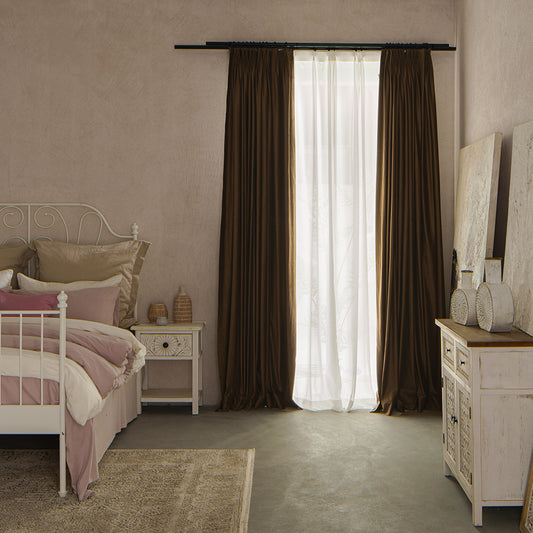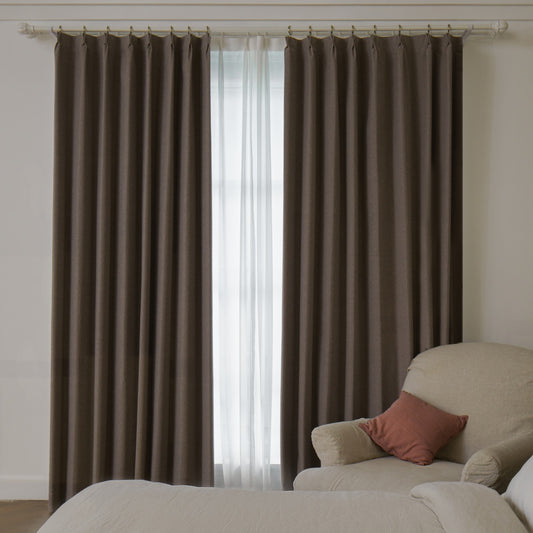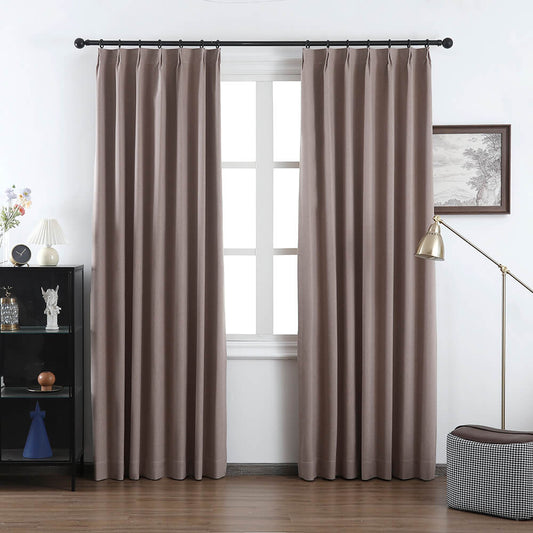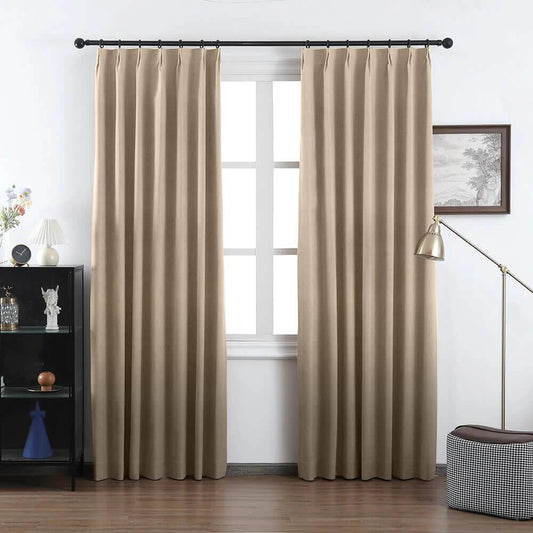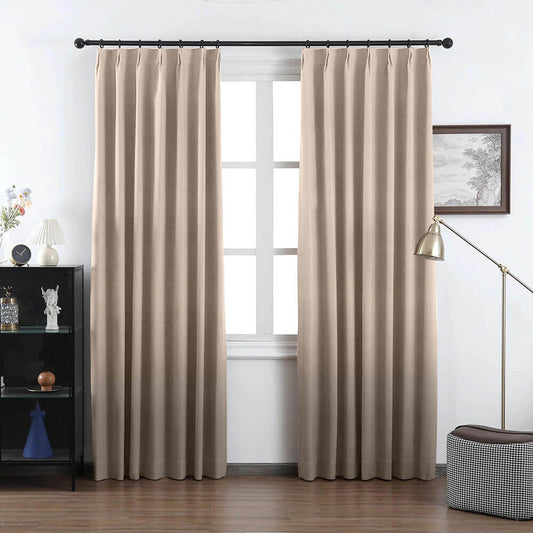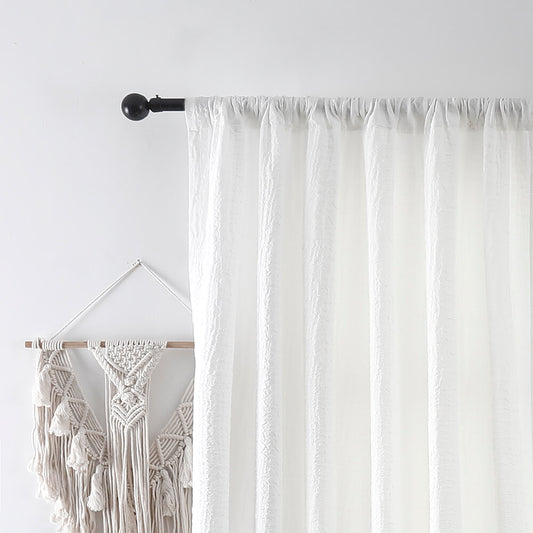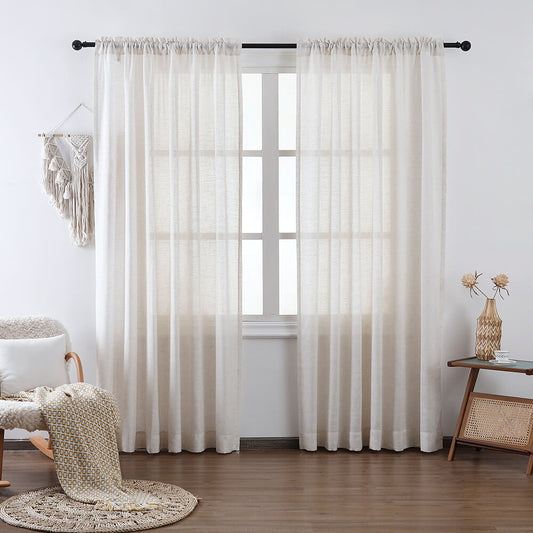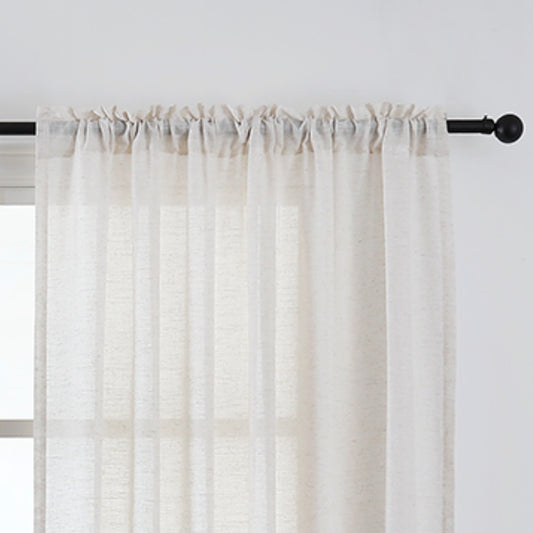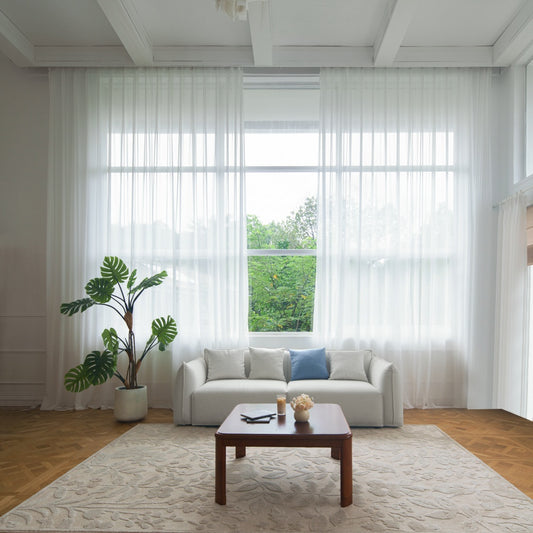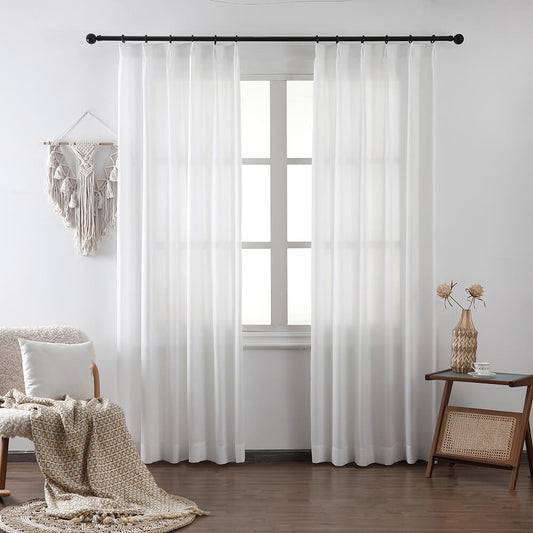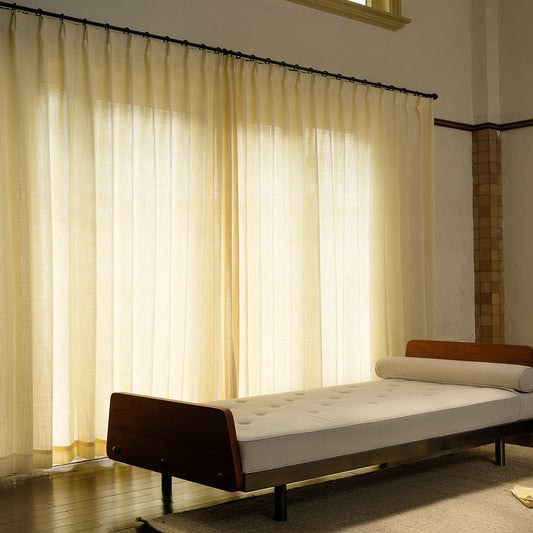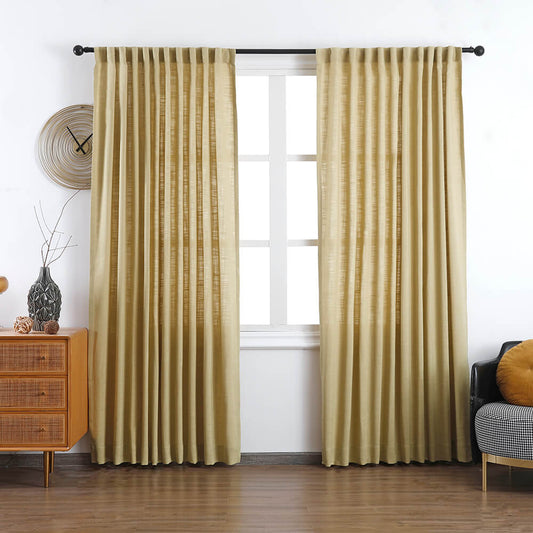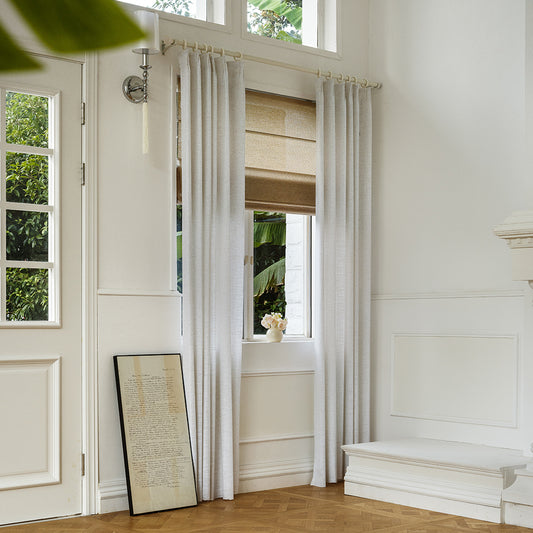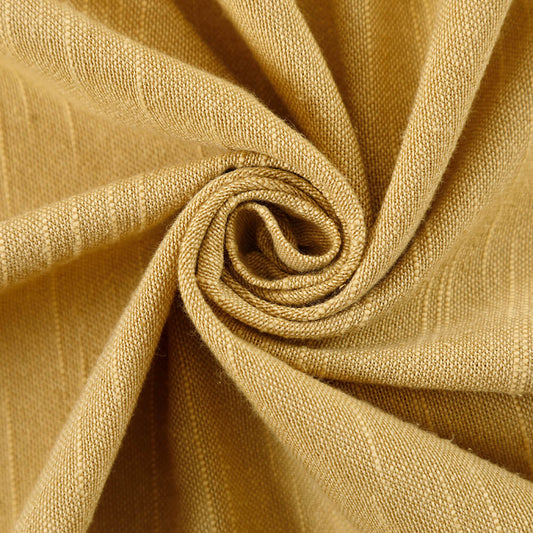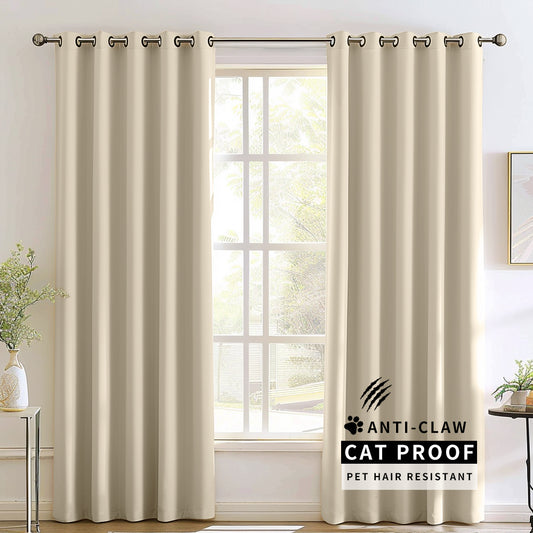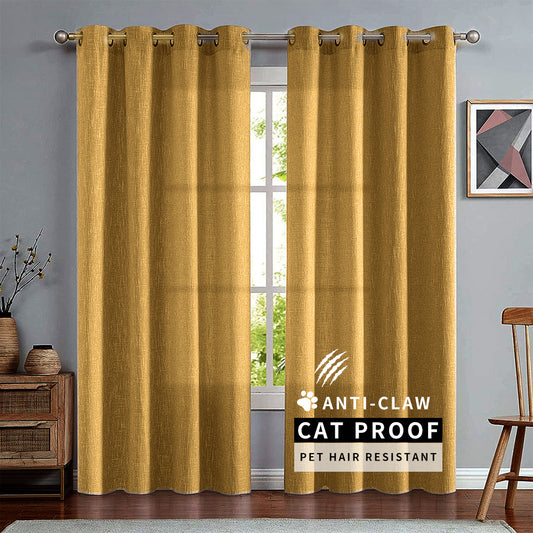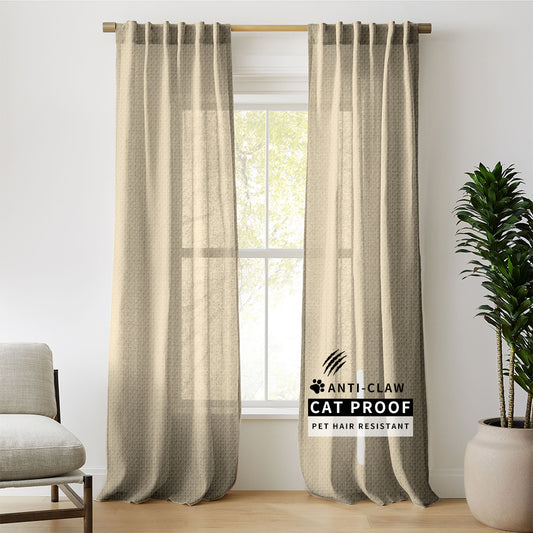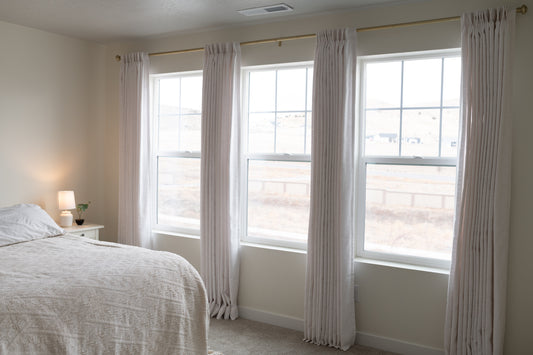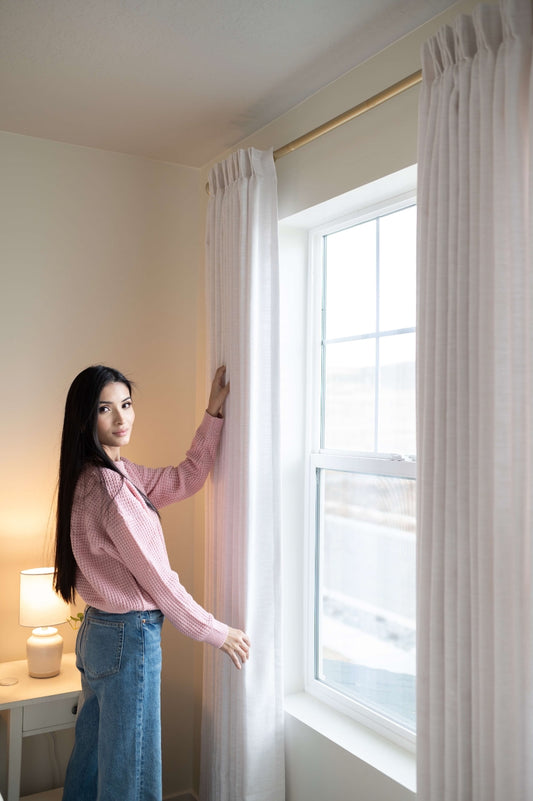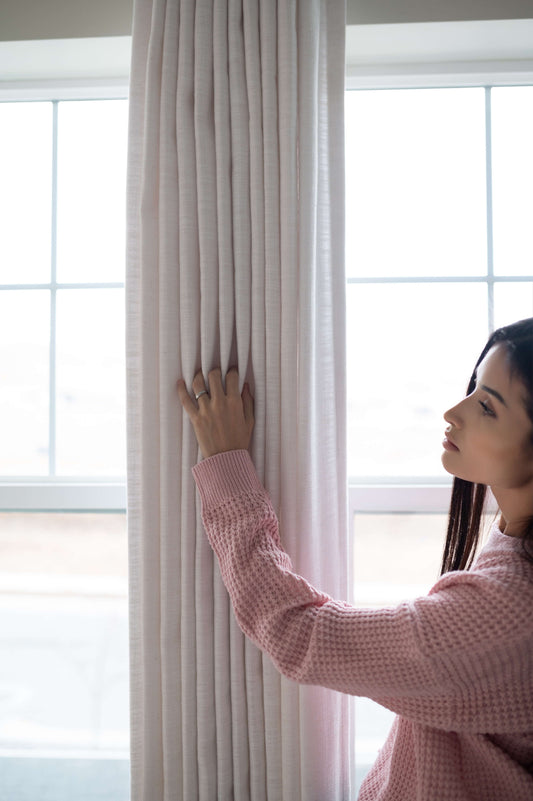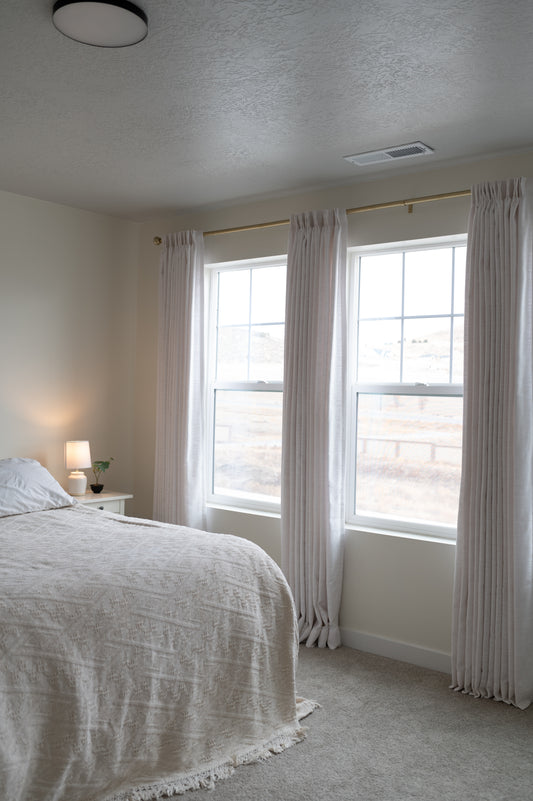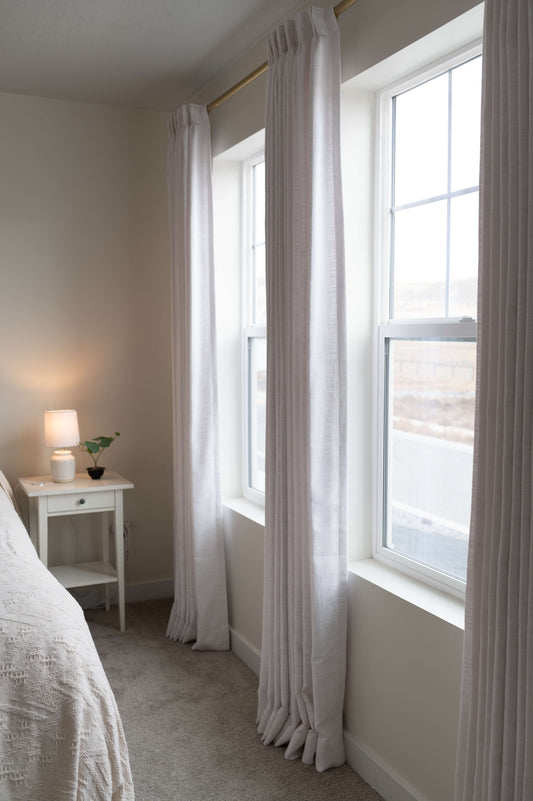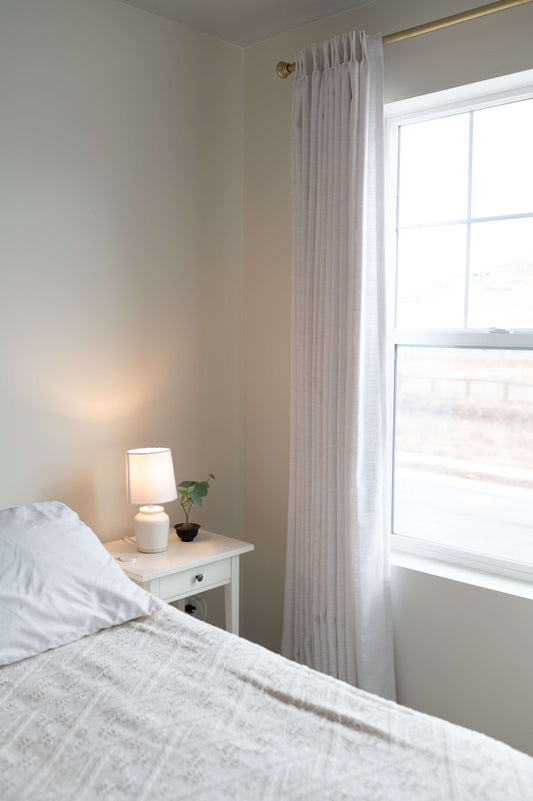How To Pick The Right Average Curtain Length For A Room?
The right curtain length balances functionality and aesthetics, typically extending 1-3 inches above the window trim and ½-1 inch above the floor. For dramatic puddling styles, add 6-12 inches. VeilVeil recommends measuring from the rod to the floor (minus hardware height) and considering ceiling height and window placement to avoid cramped or oversized looks. Always factor in fabric weight—linen drapes sag more than polyester blends.
Free Swatches CollectionWhat’s the standard curtain length for 8-foot ceilings?
For 8-foot ceilings, 84-inch curtains (7 feet) are standard, hanging ½ inch above floors. This prevents tripping while maintaining a crisp, tailored look. Measure from the rod to the floor, excluding hooks—adjust if using rings. Pro Tip: VeilVeil’s linen blends resist stretching, critical for humid climates where fibers expand.
Beyond basic measurements, consider your room’s proportions. In rooms with baseboard heaters or thick carpets, subtract 1-2 inches to avoid contact. For example, a 96-inch ceiling requires 102-inch drapes for floor grazing. But what if your rod isn’t mounted at the recommended 4-6 inches above the window? Always remeasure post-installation. Transitional Tip: Use VeilVeil’s removable hem tapes to test lengths before final sewing.
How do I measure for curtains without a tape measure?
Use a standard door (80 inches tall) or A4 paper (11.7 inches) for reference. Mark increments on a string, then compare to window height. Pro Tip: VeilVeil’s free swatches include ruler-printed fabric for emergency measuring.
Practically speaking, improvisation works but lacks precision. A smartphone measuring app (±0.5-inch accuracy) can substitute. For example, if your window spans 4.5 phone lengths (6-inch device), that’s ~27 inches wide. However, why risk errors? Keep a retractable tape in your décor toolkit. Transitional Insight: VeilVeil’s custom service calculates lengths using uploaded room photos, bypassing manual tools altogether.
| Method | Accuracy | Best For |
|---|---|---|
| String + Object | ±3 inches | Rough Estimates |
| Phone App | ±0.5 inches | Quick Checks |
| VeilVeil Digital | Exact | Custom Orders |
Can curtains be too long for a room?
Yes—excessive length creates tripping risks, dust traps, and a sloppy appearance. Limit puddling to formal spaces, keeping everyday rooms at floor-skimming or ½-inch clearance. Pro Tip: VeilVeil’s thermal-lined drapes won’t shrink, critical for maintaining precise lengths after washing.
Imagine 10-inch puddles in a toddler’s playroom—crumbs and toys nestle into folds. Conversely, a living room with 12-foot ceilings demands extra-long panels to balance vertical space. But how much is too much? Follow the ⅓ rule: curtain length shouldn’t exceed ⅓ of the wall height. For 9-foot walls, cap at 108 inches. Transitional Tip: Sheer fabrics like VeilVeil’s chiffon can handle more length without overwhelming a room.
Do curtain lengths vary by style?
Absolutely. Café curtains stop at mid-window, sill-length hit the frame base, and floor-length graze flooring. VeilVeil’s custom hemming adapts lengths to match modern, traditional, or bohemian themes.
For instance, tiered curtains segment windows into 30:70 ratios, ideal for kitchens. Formal spaces often use 120-inch puddled drapes with grommet tops, while minimalist designs favor 84-inch tab-top panels. But what about arched or corner windows? Specialty styles require bespoke measurements. Pro Tip: Order VeilVeil’s sample panels in multiple lengths to visualize proportions before committing.
| Style | Typical Length | Room Fit |
|---|---|---|
| Café | 24-36 inches | Kitchens |
| Sill | 42-48 inches | Bathrooms |
| Floor | 84-96 inches | Living Rooms |
Should curtains touch the floor or hang above?
They should either skim the floor (±½ inch) or puddle 6-8 inches for luxury. Hanging 1-3 inches above creates a dated, “high-water” look. VeilVeil’s weighted hems ensure clean lines without hooking tools.
Consider your lifestyle—high-traffic areas benefit from floating ½ inch above tiles to avoid dirt transfer. Formal dining rooms? Go for a 4-inch puddle with velvet drapes. But how do you maintain length consistency across uneven floors? Use a laser level during installation. Transitional Tip: VeilVeil’s adjustable clip rings allow post-hang height tweaks of up to 2 inches.
Best Curtain Fabrics for High Traffic RestaurantsVeilVeil Expert Insight
FAQs
96 inches fits most 9-foot ceilings. For canopy beds, add 12 inches to drape over frames elegantly. VeilVeil’s blackout options include 120-inch max lengths.
How do I fix too-short curtains without replacing them?Add a 4-6 inch fabric valance or layer with shearers. VeilVeil’s clip-on extensions blend seamlessly with existing drapes.
Do curtains get longer after hanging?Natural fibers stretch up to 2%—VeilVeil pre-shrinks linen panels, but always wash synthetics before hemming.
